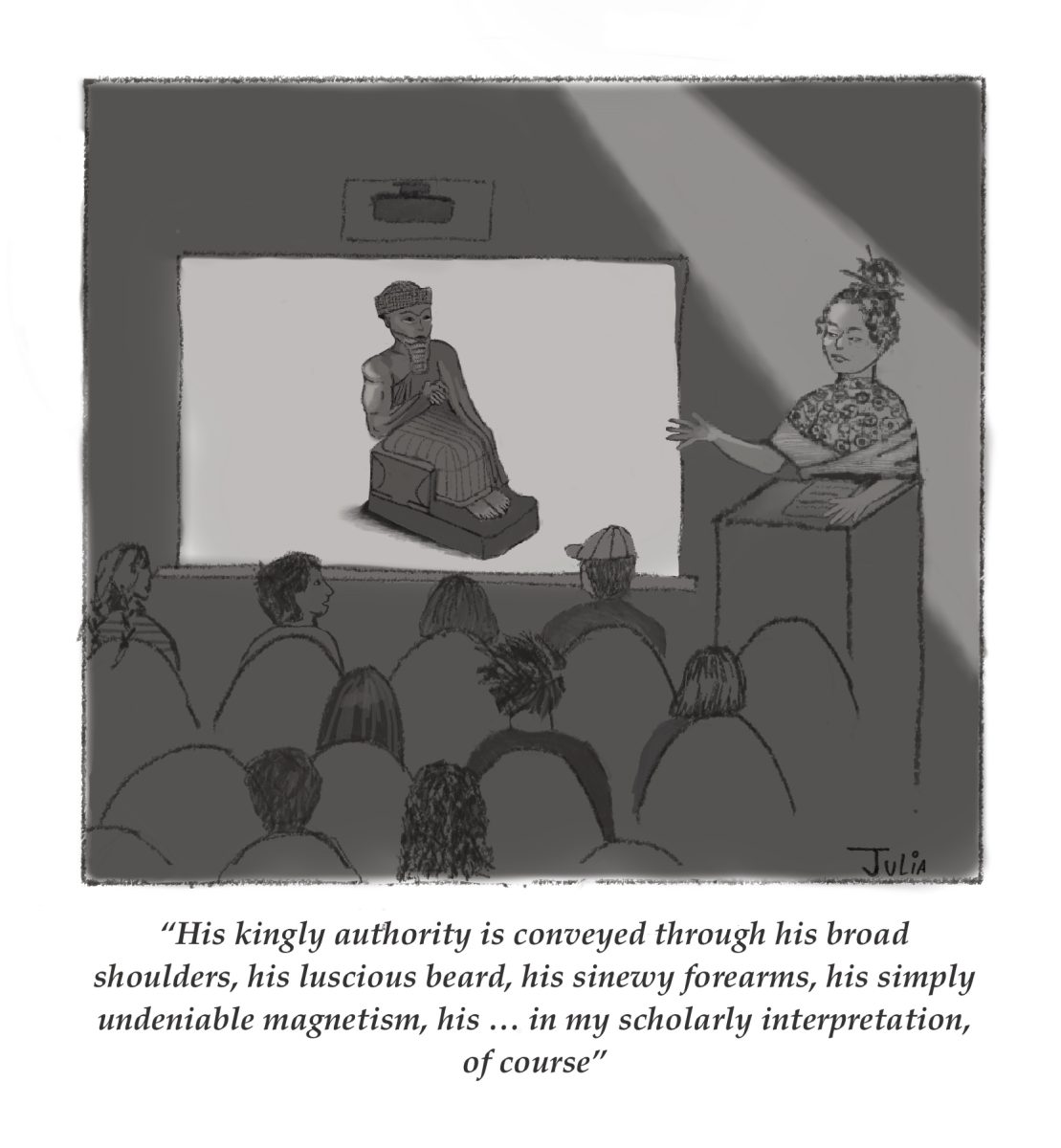Last March, I received an email from a high schooler who was considering attending Williams. “I saw your profile on LinkedIn,” the 17-year-old wrote. “I’m interested in learning more about your experience finding jobs in management consulting. Would it be possible to connect?”
It’s become very fashionable in academia to fret about the rise of careerism and its impact on the liberal arts. Every year, humanities enrollments seem to drop as students succumb to the lure of economics, statistics, and computer science. Forty-five percent of the Class of 2023 went into consulting or finance, according to that year’s first destinations survey. If these trends keep up, we worry, will professors one day be teaching philosophy to empty classrooms? Like the dead civilizations that it seeks to study, the classics department may soon be a relic of the past.
But there is another related trend in higher education that has received less attention. Students aren’t just focusing on their careers more. They’re focusing on them earlier.
Examples of early careerism are everywhere. It’s not just high schoolers emailing undergraduates about jobs in management consulting. There are first-years on campus now who, by February, will accept internships in Big Tech. There are sophomores spending their afternoons preparing for investment banking interviews. And there are finance-minded seniors who, in just a few months, will begin interviewing for their second jobs.
This trend — the steady encroachment of careerism into sophomore year, freshman year, and beyond — is a problem. Careerism means students are dedicating more of their precious time to finding jobs. And it means that life on campus for those who haven’t secured a corporate internship 12 months in advance can be intensely stressful, even if you have no interest in becoming a consultant. If you’re not early, you’re late — or, at least, it feels that way.
Worst of all, earlier career-seeking favors those students who know to be looking for jobs early, it favors students who get good grades early, and it favors students who hit the ground running at the start of their first year. In other words: The early bird gets the worm, and the early bird probably went to prep school.
So, how did we get here?
The rise of early careerism can be attributed to competition within two groups.
The first group are the employers. Forty years ago, students at prestigious colleges enjoyed a variety of career prospects. Then came competition. In pursuit of talent, top companies began to move their recruiting timelines earlier. If Goldman Sachs was hiring in April, then Morgan Stanley could steal talent by hiring in March. If Bank of America offered a program for sophomores, then Citibank’s best move was to offer a program for first-years.
I’ve spoken with recruiting managers at top firms, all of whom provide the same justification for the earlier deadlines: The company that chooses to hire late will miss out on talented applicants who are getting poached early. It’s in every company’s interest to recruit first, not last.
The second group are the students. College is expensive, and only getting moreso. Income inequality is the worst it has been in decades. And financial aid has created more financially diverse student bodies at institutions like our own.
As a result, students at prestigious colleges are locked in a competition against each other for remunerative jobs at financial services firms — the only companies that still seem to be aggressively hiring undergraduates. These jobs are the gateway to H1-B visas, financial security, and freedom from student debt.
As more and more students join the competition, it becomes harder to stand out. When 315,126 undergraduates are applying for an internship at Goldman Sachs, good grades and an economics major no longer feel like enough to get a resume noticed. That’s why preprofessional clubs are on the rise, and why students are applying to the earliest programs they can find. Anything to stand out from the crowd.
That’s how we arrive at the present day. Welcome back to campus, Ephs. The career fair is scheduled for the first week of school.
Let me be clear: Increased competition for corporate jobs is a sign of progress. Back in the bad old days, there wasn’t as much competition because hiring practices were less fair. If you didn’t go to the right school, know the right people, and look the right way, your chances were close to zero. Our new system is more diverse and meritocratic. We are better off.
But our partial meritocracy isn’t perfect. Competition and commodification are stressful.
I’ve felt this pressure firsthand. I remember how nervous I felt during the first month of school as I applied to join preprofessional clubs. There was something both comical and nerve-racking about studying for an interview two weeks into my Williams journey.
Since then, application numbers to these clubs have only increased. It’s terrifying to think that there are students on campus today whose career paths are being meaningfully shaped by their ability to write strong club applications as first-years.
Early careerism isn’t a problem that any individual or firm can solve. But sunlight is the best disinfectant: Everyone should, at the very least, be thinking about this concerning trend. It’s time for everyone to look up, take a deep breath, and acknowledge: This whole situation is getting a little crazy.
Today, there is a 15-year-old girl somewhere in the world who has her sights set on Williams. She will spend her high school years loading up on AP courses and extracurriculars, and she will apply through the early decision process at the age of 17. In the fall of her sophomore year, she will begin studying for corporate interviews, and by January she will land a job in investment banking.
She might be 26 years old the next time she looks up from her desk and makes a decision about her career.
David Wignall ’25 is an economics and history major from San Francisco. He is an executive editor-at-large.




